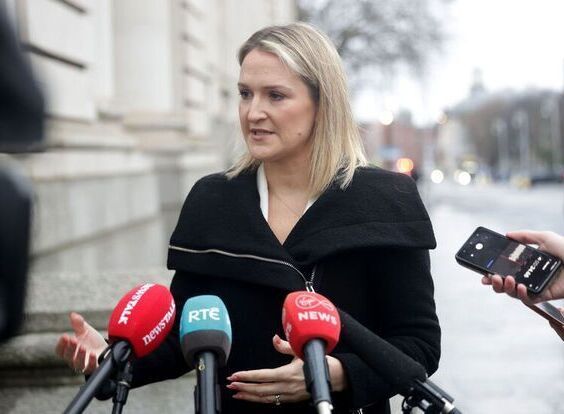The return of devolved government and power sharing in Northern Ireland is to be warmly welcomed.
The North had been without a functioning Executive and Assembly for three years and the lack of a government involved in the daily affairs of the six counties was becoming all too evident right down to the recent unprecedented strike action by nurses.
There is much work to be done and that even ignoring Brexit, which of course cannot be ignored at all.
The ground has been shifting in Northern Ireland under the feet of its elected representatives. That moving could turn into some serious shaking in the months ahead, and after the January 31 Brexit deadline which now is certain to bite.
To be relevant at all and to all, the North’s political parties and their members have to take strong stances on the effects of Brexit, regardless of whatever position they took on it back in the 2016 referendum.
That will be a particular challenge for the Democratic Union Party whose leader, Arlene Foster, is the North’s newly minted First Minister.
Foster has to realize that she is in a new confidence and supply arrangement, not with Conservatives in London, but with the people of Northern Ireland.
Foster will be required to inspire confidence and to do her part in supplying sensible and needed policies as Brexit takes hold.
Prior to the resumption of political activity at Stormont there was an announcement by the Irish and British governments which stated: “The Tánaiste and the Secretary of State for Northern Ireland have tonight at Stormont announced and published a proposed agreement - New Decade, New Approach - as the basis for the political parties in Northern Ireland to operate the power-sharing Executive and Assembly again, which would also allow the resumption of the North South Ministerial Council.
“This is based on the extensive discussions and collective work undertaken by the Parties since May last year. The Governments believe that it represents a fair and balanced package that, if implemented, would make politics and government in Northern Ireland more transparent, accountable, stable, inclusive and effective. The Governments have also each announced a series of financial and other commitments in support of the resumption of the power-sharing institutions at Stormont and the North South Ministerial Council and these are both annexed to the proposed agreement. The Governments have therefore today put this proposed agreement to all the parties.”
This joint announcement, to anyone familiar with the way things have worked with regard to Northern Ireland, was a reminder that the parties not infrequently require a degree of outside intervention in order to feel comfortable enough to publicly agree to things among themselves.
This was the case with U.S. intervention prior to the Good Friday Agreement and in the years that followed. In this instance, it was Dublin and London that took the lead role but that’s no reason for the current U.S. administration to fall asleep in relation to one of the standout foreign policy achievements of the United States in the past quarter of a century.
That said, it should be noted that Congress still has its foot in the door even if the administration does not. That foot should remain firmly where it is.
There should be no underestimating the difficulties that the new power sharing arrangement at Stormont could face, particularly in the context of Brexit, over which it will have such little direct control.
After all, most parliaments in democratic societies, though the venue for battles between rival parties, are made up of members who, at the end of the day, sing the same national anthem and salute the same national flag.
This is not the case at Stormont. Still, much of what passes for the nuts and bolts of sensible governance does not require adherence to differing national allegiances.
A pothole is a pothole is a pothole.
It is worth noting that Dublin and London threw a fair bit of cash in the way of restored power sharing government.
They likely will have to continue to dig into their respective pockets. Brussels could dig into its pocket too, and hand over some euros to Dublin for distribution in Belfast.
Dublin, not London which, of course, will be out it the wide world all on its lonesome just a few weeks from now.









